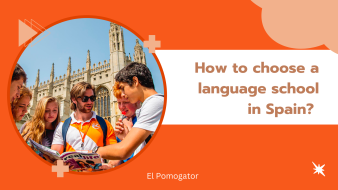University or language courses?
Choosing a Path for a Student Visa in Spain: University or Language Courses?
A student visa is one of the most accessible visas at the moment. It grants you a foreigner's number (NIE) and a student card (TIE), which becomes your ID for the duration of your studies. This is considered a temporary residence permit in Spain.
The TIE opens doors to all of Europe, meaning you can travel freely with it. But on what basis should you obtain it—through language courses or university enrollment? We’ll explore this in today’s article.
Go back to the blog
Language Courses
This option is convenient for adult applicants who do not yet know the language and do not plan to pursue another higher education degree. The course must last at least 7 months, and after a year of study, you’ll be able to understand and converse with locals in Spanish. There are two main conditions:- The school must provide 4 hours of classes 5 times a week (totaling 20 hours).
- The school must be accredited by the Cervantes Institute.


 27/09/2024
27/09/2024  Reading time: 5 min
Reading time: 5 min 



